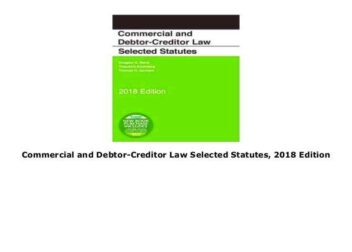Commercial Law Insights from the Gold Coast
Commercial law is a crucial area that governs business activities on the Gold Coast. It encompasses various legal principles that affect how businesses operate, make agreements, and resolve disputes. Understanding this field is essential for anyone involved in commerce, from small business owners to large corporations. This knowledge not only helps in making informed decisions but also ensures compliance with legal requirements, ultimately fostering a fair and competitive market.
Key Regulations Affecting Businesses

The Gold Coast, like the rest of Australia, has specific regulations that businesses must adhere to. Here are some of the key regulations:
- Australian Consumer Law (ACL): Protects consumers and ensures fair trading practices.
- Corporations Act 2001: Governs the conduct of companies and their directors.
- Employment Law: Covers workplace rights, conditions, and obligations for employers and employees.
- Environmental Regulations: Ensures businesses operate sustainably and comply with environmental standards.
- Intellectual Property Laws: Protects creations and inventions, allowing businesses to safeguard their innovations.
These regulations are designed to maintain ethical practices and protect the interests of all parties involved. Understanding these laws is vital for mitigating risks and ensuring long-term success.
Importance of Compliance in Commercial Transactions

Compliance is not just a legal obligation; it’s a foundation for trust and credibility in business. Here’s why it matters:
- Builds Trust: When businesses comply with laws, they gain the trust of customers, suppliers, and investors.
- Minimizes Legal Risks: Non-compliance can lead to legal disputes and financial penalties.
- Enhances Reputation: Companies known for compliance attract more customers and partnerships.
- Facilitates Smooth Operations: Clear guidelines and regulations help businesses operate efficiently.
To ensure compliance, businesses should regularly review their practices and seek legal advice when necessary. A proactive approach not only safeguards against legal issues but also supports sustainable growth.
Role of Contracts in Commercial Law
Contracts are the backbone of commercial transactions. They set the terms of agreements between parties and help ensure everyone knows their rights and responsibilities. On the Gold Coast, having clear and well-drafted contracts is essential for businesses of all sizes. Whether you’re entering a partnership, selling products, or hiring employees, contracts play a crucial role in protecting your interests and minimizing disputes.
Here are some key aspects of contracts in commercial law:
- Legal Binding: Once signed, contracts create legal obligations. This means parties must follow through on their commitments.
- Clarity: A good contract outlines specific terms, including payment details, delivery schedules, and quality standards. This reduces misunderstandings.
- Protection: Contracts can include clauses that protect your interests, such as confidentiality agreements and non-compete clauses.
- Dispute Resolution: Many contracts include terms for resolving disputes, such as arbitration or mediation, which can save time and money.
In summary, contracts are vital for ensuring smooth business operations. Investing time in drafting clear contracts can prevent legal headaches down the road.
Dispute Resolution Methods in Commercial Law
Disputes can arise in any business, but knowing how to resolve them effectively is key to maintaining healthy relationships. In commercial law, several methods exist to address conflicts without resorting to lengthy litigation. Here are the most common methods:
- Negotiation: This informal process allows parties to discuss their differences directly and work toward a mutually agreeable solution.
- Mediation: In mediation, a neutral third party helps facilitate discussions between the conflicting parties to reach an agreement.
- Arbitration: This involves a neutral third party who listens to both sides and makes a binding decision. It’s often quicker and less formal than court proceedings.
- Court Litigation: When other methods fail, disputes may go to court. This is the most formal and often the most expensive option.
Each method has its advantages and disadvantages, and the best choice depends on the specific situation. Being aware of these options can save businesses time, money, and stress when conflicts arise.
Impact of Local Business Environment on Commercial Law
The local business environment on the Gold Coast significantly influences how commercial law is applied and interpreted. Factors such as market conditions, economic trends, and cultural attitudes can shape the legal landscape for businesses. Here are some ways the local environment impacts commercial law:
- Economic Conditions: A thriving economy may lead to more competitive business practices and stricter enforcement of regulations.
- Consumer Behavior: Understanding local consumer preferences can inform contract terms and compliance strategies.
- Government Policies: Local regulations and government support programs can affect how businesses operate and comply with commercial laws.
- Industry Trends: Changes in industry practices can lead to new legal precedents and updates in commercial law.
Staying informed about the local business environment is crucial for companies operating on the Gold Coast. This awareness helps businesses adapt to changes and remain compliant with evolving laws.
Legal Resources for Businesses on the Gold Coast
Navigating commercial law can be daunting, especially for small business owners. Fortunately, the Gold Coast offers a wealth of legal resources to help entrepreneurs understand and comply with relevant laws. These resources range from legal services to educational materials designed to empower business owners. Here are some key resources available:
- Local Law Firms: Many law firms specialize in commercial law and offer consultations tailored to businesses. They can assist with contracts, compliance, and dispute resolution.
- Government Websites: Resources like the Australian Government’s Business website provide valuable information on legal obligations, grants, and support services.
- Chamber of Commerce: Joining a local chamber can connect business owners with legal experts and provide networking opportunities.
- Workshops and Seminars: Many organizations host events focused on commercial law, offering practical advice and insights from experienced professionals.
- Online Resources: Websites and online forums dedicated to legal topics can provide quick answers and support for common business issues.
By utilizing these resources, businesses on the Gold Coast can navigate the complexities of commercial law with confidence and clarity.
Frequently Asked Questions about Commercial Law
Commercial law can raise many questions for business owners. Understanding these frequently asked questions can clarify some common concerns:
- What is commercial law? Commercial law governs business and commercial transactions, including contracts, sales, and corporate regulations.
- Do I need a lawyer to draft a contract? While it’s possible to create a contract without legal help, consulting a lawyer can ensure the document is enforceable and protects your interests.
- What should I do if a contract is breached? Start by reviewing the contract terms and considering negotiation. If unresolved, you may need to pursue mediation or arbitration.
- How can I ensure compliance with commercial laws? Regularly review your business practices, seek legal advice, and stay updated on changes in the law.
- What are the consequences of non-compliance? Non-compliance can lead to legal penalties, financial loss, and damage to your business reputation.
Addressing these questions can help business owners feel more equipped to manage legal matters effectively.
Conclusion and Final Thoughts
Understanding commercial law is essential for any business operating on the Gold Coast. It provides the framework for fair transactions and helps protect the rights of all parties involved. By familiarizing yourself with key regulations, the role of contracts, and available legal resources, you can create a solid foundation for your business.
Whether you’re just starting or looking to expand, staying informed about commercial law will empower you to make sound decisions and navigate challenges confidently. Remember, investing in legal knowledge today can save you time and resources in the future. So, take advantage of the resources available and keep your business on the right track!

